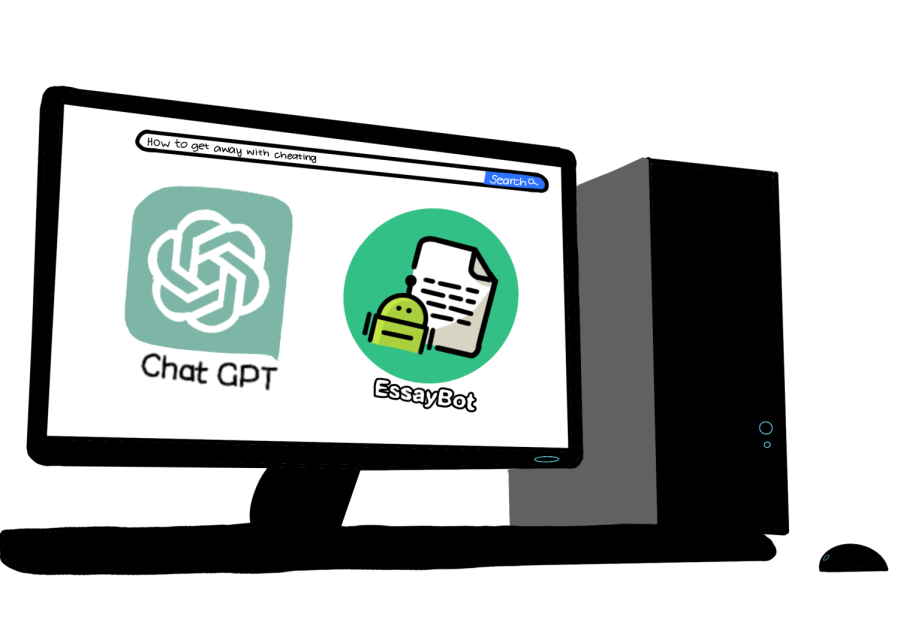Artificial intelligence: Is new technology more problematic than helpful?
Artificial intelligence (AI) is a tool that is becoming more widespread around the world every day. New software is continuously being developed, and people are trying to find better ways to accurately assess if the tool is helping or not. While many come into contact with artificial intelligence in a multitude of different ways, there is more complexity behind AI as a whole.
Some may argue that if it were not for artificial intelligence, we would be lost as a society. Throughout the United States, people from all places, backgrounds, social statuses and even wealth are seen using artificial intelligence. Whether this be Google, Youtube, Instagram or another form of AI, artificial intelligence is always underlying in any application that we use. It is helpful that nowadays we can communicate effectively with the press of a button or the touch of a screen. While this is certainly an intriguing part of technological advancement, AI can be used in more ways than we may recognize.
The United States Medical Licensure Examination Step One (USMLE-Step 1) is a test that all students enrolled in medical school must take in order to advance within their respective programs. However, it seems as if non-medical students, or more accurately, nonhumans, can also pass this dreadful exam. A new artificial Intelligence software named ChatGPT was able to successfully take and pass the USMLE-Step 1. Not only this, but in universities and high schools around the globe, students and their peers have AI, such as ChatGPT, to write essays and do other assignments for them. This has become an unfavorable issue for educators worldwide because if their students can cheat this easily, are they really teaching? Are students, far and wide, actually learning from the efforts of their teachers? The answer is increasingly becoming less obvious day by day.
Anyone who pursues education beyond high school and successfully passes any sort of secondary education program can go into the working field. These very people are our future doctors, lawyers, journalists and world leaders. But what if it were for nothing? What if the only reason someone gets a degree is that they cheated their way through school? More importantly, what does this do for our world and our future? Some students spend years of their life exhibiting outstanding virtue and grit to obtain a degree of any kind. While others cheat their way through education, living an insouciant lifestyle to just end up obtaining the same piece of paper and wearing the same cap and gown as the rest of the men and women who exemplified true resilience. This is not only jeopardizing whatever company the lazy student chooses to work for, but it also puts the future at risk.



